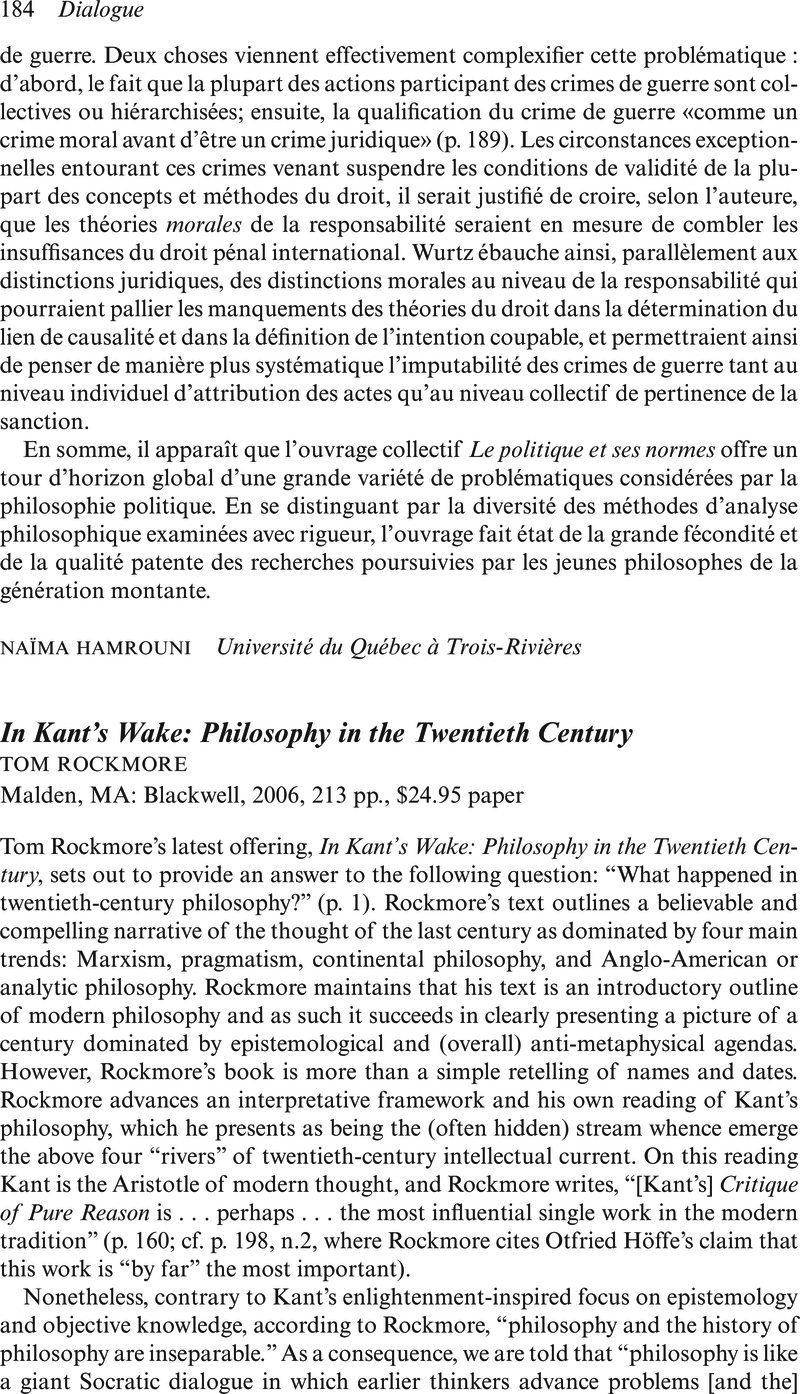No CrossRef data available.
Article contents
In Kant's Wake: Philosophy in the Twentieth CenturyTom Rockmore Malden, MA: Blackwell, 2006, 213 pp., $24.95 paper
Published online by Cambridge University Press: 27 April 2009
Abstract

- Type
- Book Reviews/Comptes rendus
- Information
- Dialogue: Canadian Philosophical Review / Revue canadienne de philosophie , Volume 47 , Issue 1 , Winter 2008 , pp. 184 - 187
- Copyright
- Copyright © Canadian Philosophical Association 2008
References
Note
1 For example, Sluga, Hans in his Gottlieb Frege (New York: Routledge & Kegan Paul, 1980)Google Scholar argues that Frege's thought has its origins in, and has a close affinity to, nineteenth-century German transcendental philosophy. Sluga's position is implicitly criticized by Schüler, Wolfgang in his Grundlegungen der Mathematik in transcendentaler Kritik (Hamburg: Felix Meiner Verlag, 1983)Google Scholar, but central aspects of Sluga's “transcendental” reading of Frege are elaborated on by Roberts, Julian in his Logic of Reflection: German Philosophy in the Twentieth Century (New Haven, CT: Yale University Press, 1992), pp. 49–105Google Scholar. For readings of Wittgenstein's project as amounting to a new kind of transcendental idealism, see Williams, Bernard, “Wittgenstein and Idealism” (in Understanding Wittgenstein [Cambridge: Cambridge University Press, 1974])Google Scholar, and Pihlström, Sami, “Recent Reinterpretations of the Transcendental” (Inquiry, 47 [2004]: 289–314)CrossRefGoogle Scholar. Pihlström seems to understand Wittgenstein's reflections on the limits of meaningful discourse as proposing a new pragmatic take on the traditional Kantian transcendental project.




